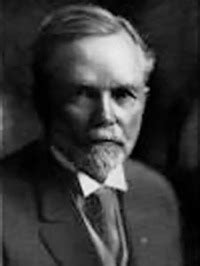A Quote by Wendell Berry
There are endless ways to amuse oneself and be idle, and most of them lie outside the woods. I assume that when a man goes to the woods he goes because he needs to. I think he is drawn to the wilderness much as he is drawn to a woman: it is, in its way, his opposite. It is as far as possible unlike his home or his work or anything he will ever manufacture. For that reason he can take from it a solace-an understanding of himself, of what he needs and what he can do without-such as he can find nowhere else.
Related Quotes
Always man needs woman for his friend. He needs her clearer vision, her subtler insight, her softer thought, her winged soul, her pure and tender heart. Always woman needs man to be her friend. She needs the vigor of his purpose, the ardor of his will, his calmer judgment, his braver force of action, his reverence and his devotion.
In the woods, too, a man casts off his years, as the snake his slough, and at what period soever of life, is always a child. In the woods is perpetual youth. Within these plantations of God a decorum and sanctity reign, a perennial festival is dressed, and the guest sees not how he should tire of them in a thousand years. In the woods we return to reason and faith.
When a woman submits to a man, it's the most precious gift she can give. Herself. Unreservedly. The man has to respect and honor that gift above all else. Even if he respects nothing else in the world, he must respect the woman in his care. It's his sworn duty to protect, honor and cherish his submissive. To take care of her and provide a safe haven. Someone who would put his own needs above his woman's is no man.
Meditation is enjoying oneself, just sitting silently doing nothing: happy, joyous without any reason, because all reasons come from outside. You meet a beautiful woman and you are happy, or you meet a beautiful man and you are happy - but the meditator is simply happy. His happiness has no reason from the outside world; his happiness wells up within himself.
In the absence of government each man learns to think, to act for himself, without counting on the support of an outside force which, however vigilant one supposes it to be, can never answer all social needs. Man, thus accustomed to seek his well-being only through his own efforts, raises himself in his own opinion as he does in the opinion of others; his soul becomes larger and stronger at the same time.
There are so many fantastic roles, but the ones that have always drawn me to them are the loners who, for whatever reason, never quite fit in and knew it and had to find their own way. I've always been drawn to that, for some reason. I've always been drawn to that sad, isolated place, but what it produces in behavior is something else, entirely. For whatever reason, I'm drawn to these people. Essentially, I think what draws me is that they are survivors against rather considerable odds.
He who has learnt to control his tongue has attained self-control in a great measure. When such a person speaks he will be heard with respect and attention. His words will be remembered, for they will be good and true. When one who is established in truth prays with a pure heart, then things he really needs come to him when they are really needed: he does not have to run after them. The man firmly established in truth gets the fruit of his actions without apparently doing anything. God, the source of all truth, supplies his needs and looks after his welfare.
The late British-born philosopher Alan Watts, in one of his wonderful lectures on eastern philosophy, used this analogy: "If I draw a circle, most people, when asked what I have drawn, will say I have drawn a circle or a disc, or a ball. Very few people will say I've drawn a hole in the wall, because most people think of the inside first, rather than thinking of the outside. But actually these two sides go together--you cannot have what is 'in here' unless you have what is out there.' " In other words, where we are is vital to who we are.
Are we lost, or are we found at last? On earth we strive for our various needs, because so goes the fundamental law of man. Aloft, at least for a little while, the needs disappear. Likewise the striving. In the thoughts of man aloft, food and evil become mixed and sometimes reversed. This is the open door to wisdom. Aloft, the earth is ancient and man is young, regardless of his numbers, for there, aloft he may reaffirm his suspicions that he may not be so very much. This is the gateway to humility.
The cat will keep his side of the bargain. He will kill mice, and he will be kind to babies when he is in the house, just so long as they do not pull his tail too hard. But when he has done that, and between times, and when the moon gets up and night comes, he is the Cat that walks by himself, and all places are alike to him. Then he goes out to the Wet Wild Woods or up on the Wet Wild trees or on the Wet Wild roofs, waving his wild tail and walking by his wild lone.
Only a great man, believe me, and one whose excellence rises far above human failings, will not allow anything to be stolen from his own span of time, and his life is very long precisely because he has devoted to himself entirely any time that became available. None of it lay uncultivated and idle, none was under another man's control, for guarding it most jealously, he found nothing worth exchanging for his own precious time.






































